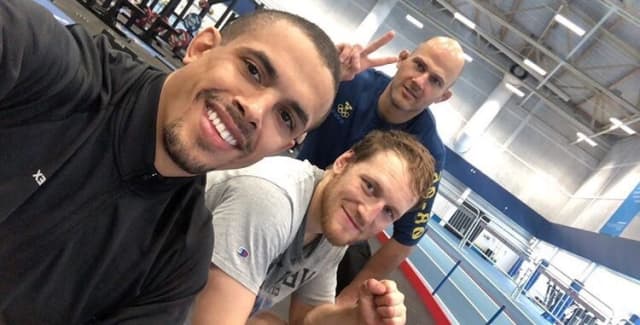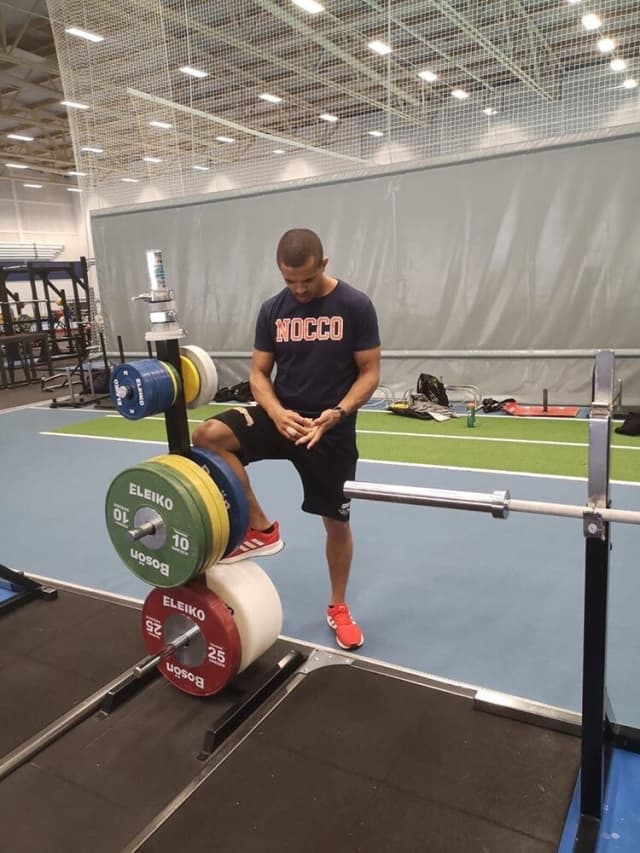Sweden remains the only country in Europe not to have succumbed to the confinement and Sami CHOUCHI is undoubtedly one of the few judokas who continues to train almost normally.
"I arrived in Stockholm on 10th March to join my wife and my 3 month old daughter. We were to leave at the end of March for Belgium, together. The COVID-19 situation upset my schedule. My DTN, Cédric Taymans, spoke with the Swedish coach Robert Erikssonn, who offered for me to participate in a training course with the Swedish national team at the beginning of April and everything came together naturally. Today I think I'm very lucky. I train at the Olympic centre in Boson and 10 days ago I was doing a judo session every day!”
The Swedish government has indeed suggested to all sports federations to restrict access to facilities and activity. There is no obligation. This Scandinavian kingdom has opted for recommendations and citizen accountability. As a result, most judo clubs have closed their doors.
Sami continues, "But I can continue my physical preparation, in a large fitness room, with specific judo work, grappling, kumikata workshops. There are six of us in total and we respect social distancing. Apart from the two daily sessions, we are all very serious and we stay at home and don't take any unnecessary risks.”
At 27 years old, Sami CHOUCHI takes advantage of this period of confinement to return to the highest level in the category of -81kg, where he is now edged out by the young Matthias Casse, the 2019 World silver medalist. Sami trains with Robin Pacek, bronze medallist at the last Grand Slam in Dusseldorf in -81kg, but also Joakim DVARBY, the -100kg, as well as two juniors. "This is the occasion for me to come back in the race for the Tokyo Olympics. I was injured and I have had time to recover and I also take advantage of time with my wife and my little girl.”
The only two restrictions here in Sweden are on gatherings of more than fifty people and visits to old people's homes. For the rest, the government has called for good citizenship, asking everyone to take responsibility.
“Here, people didn't wait for the virus to strike to respect themselves. There is a real culture of respect for others and their communities. These social responsibilities, this stance on life, they already applied it before. I have travelled a lot thanks to judo, only in Japan have I seen such good manners. When you go to a restaurant at the moment, it's a busy table, two empty tables. When I take the subway, it's automatically one seat per person. Everything is cleaned, disinfected. I'm not sure that in Belgium we would be able to respect these rules.”
While waiting to have a date to write in his diary, the Belgian international perfects his Swedish and prepares to find the tatami with renewed, multiplied energy and a new philosophy of life.



